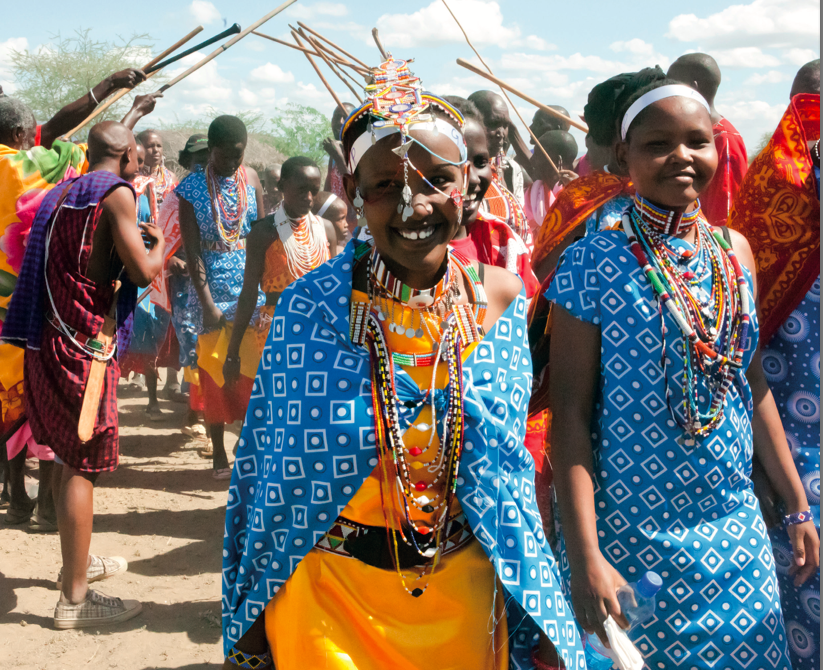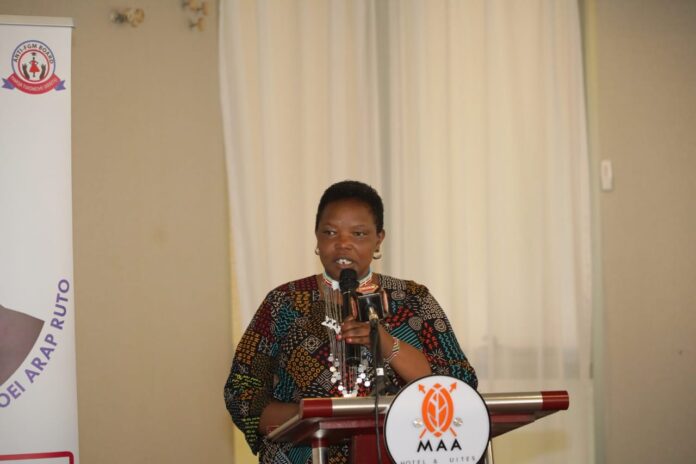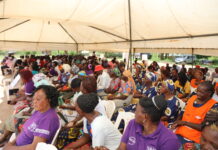By Morara Kebaso
Nairobi, Kenya: For close to five decades of her life, Ipato Surum, the Anti FGM Board Chair has never experienced any other pain apart from when she was cut.
She confessed yesterday it still traumatizes today more than 30 years ago. It’s so fresh in her mind until she feels it only happened last night.
“It still traumatises,” she said at a Nairobi hotel during a session with journalists ahead of the International Day of the Girl Child officially to be marked in Kajiado, a part of the country that always been popular with FGM and other atrocities facing the Girl Child.
I have even had a fracture among other numerous periods of pain, but that’s the only pain I can never forget, Surum said calling on Kenyan women who have undergone Female Genital Mutilation (FGM), to come forward and help sustain the gains made in the fight against the vice.
The Board is also advocating for more funding to in order to maintain the momentum that has already seen prevalence of FGM in the country drop from 14.8% in 2014 to 9% in 2022, according to the Kenya Demographic Health Survey 2022 (KDHS, 2022).

In the 2022-2023 Financial Year, the National Treasury increased funding for the anti-FGM campaign, what the Board termed as 150%, but concerned the following year, 2023-2024 it dropped.
“We are moving towards zero, however, there is need to work hard to sustain this momentum in order to reduce FGM,” she said, noting that Kenya is among countries in the world that has recently seen the FGM burden dropping.
There are 22 counties in the country with a high burden of FGM, however in five devolved units, the prevalence, the Board said is worrying.
Described as the ‘red counties’ in the FGM burden among women aged 15-49 years, Wajir accounts for 97.2%, followed by Mandera 95.9%, Marsabit 83%, Garissa 82.5% and Kisii at 77.3%.
Surum said the Board is also concerned about the group of women aged 40-49 years where the burden is highest of those born in the 1970s, and called on support so that they can form a pool of survivors who will add value to the efforts.
However, according to Bernadette Loloju, the Chief Executive Officer, Anti-FGM Board, there are a number of initiatives being developed to sustain the momentum.
‘Dear Daughter Campaign’ and ‘Daughters Against FGM’ are some of the strategies to achieve the 2030 Zero target, according to Loloju who also expressed concern that the trauma among women who have undergone the cut could be being passed down to the daughters.
“We want a future where we will have no girls feeling the pain their mothers went through,” she said.
Kenya is working with Ethiopia, Somalia, Uganda and Tanzania to end FGM. Sadly, she noted the country among her neighbours in East Africa has the highest prevalence of FGM. In 2019, the Ministers of Gender signed an MoU to reduce the burden.
“We are now throwing out that shame that has hampered this campaign for years out of the window,” she said, emphasizing the need to continue talking against the vice.
Some of the initiatives are aimed at tackling beliefs and myths that FGM is cultural.
The International day of the Girl Child was adopted by the United Nations General Assembly in 2011 and marked annually on October 11. The day emphasizes the necessity of addressing the distinctive obstacles that girls encounter and promote their empowerment and realization of their human rights and potentials.
This year the Anti-FGM Steering Committee and partners, will lead the country in marking the celebrations in Kajiado County with the theme “Girls’ Vision to a Future free from Female Genital Mutilation”.














